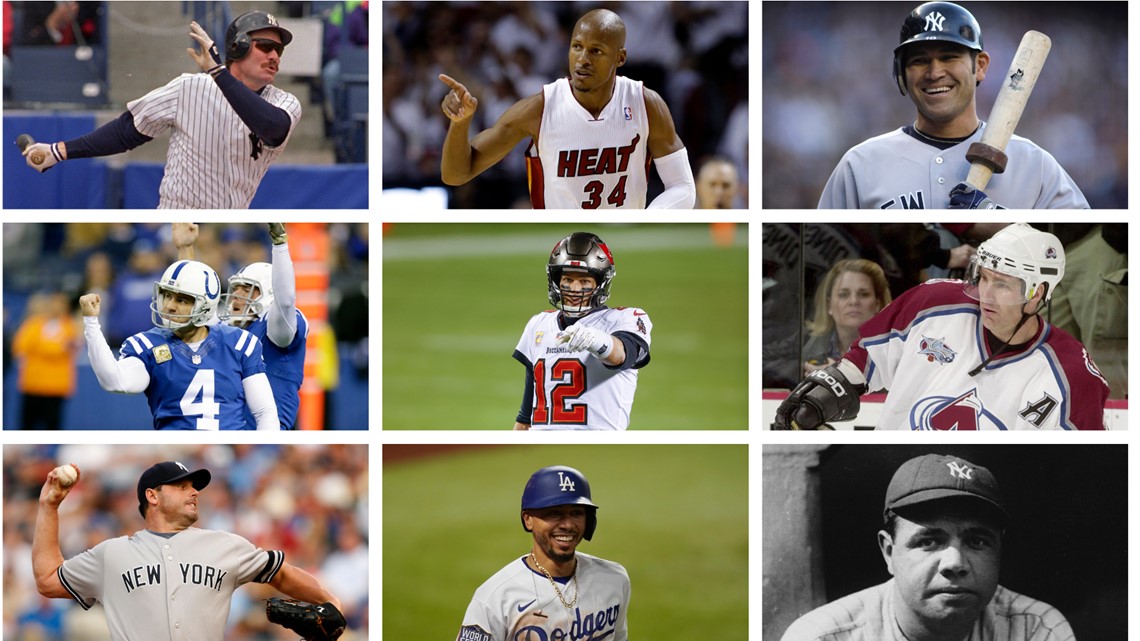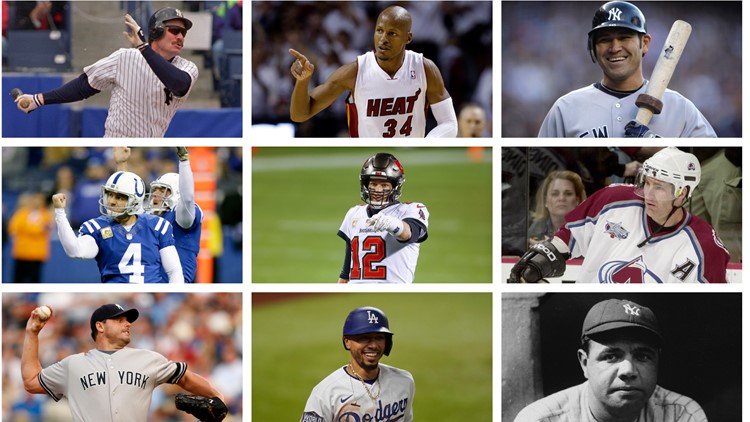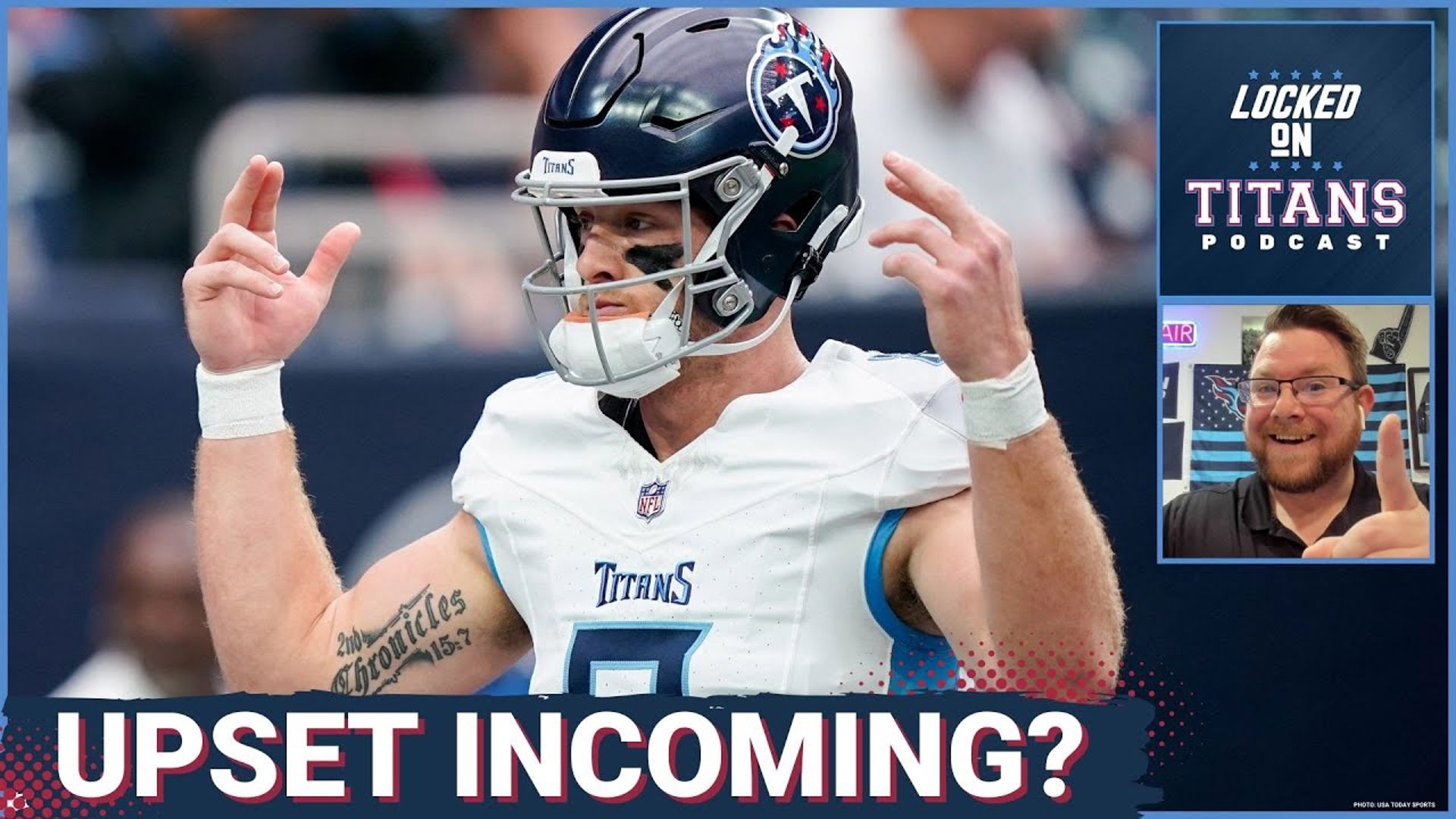Regardless of whether you’re rooting for Tom Brady to win or lose against the Kansas City Chiefs on Sunday, it’s important to recognize the circumstances. The greatest of all time played for the New England Patriots for TWO DECADES, and now, in his first season with his new team, he could achieve that same greatness by winning his seventh Super Bowl.
Brady is in a league of his own when it comes to New England athletes past and present, again because of his two decades representing the region but also because of his unprecedented success at quarterback, one of the most important and influential positions in sports. But he also has the support of much of New England, which certainly hasn't always been the case for players who've left.
If Brady wins, how might it compare to past athletes who've left New England and gone on to win championships elsewhere? How can we try to make sense of this historically? To start, there are a few other athletes who similarly left New England and won championships in their first seasons with their new teams.
Ray Allen won a championship in 2013, his first season with the Miami Heat, after reportedly turning down a 2-year, $12 million contract offer to stay with the Celtics and instead signing a contract for roughly $3 million per year with the Heat. This, of course, after Allen and the Celtics had just lost to the Heat in game 7 of the Eastern Conference Finals the previous season.
Naturally, Celtics fans weren’t happy and neither were Allen’s former teammates on the Celtics. Kevin Garnett famously ignored Allen when Allen checked into his first Heat-Celtics game the following year, and Garnett still holds a grudge to this day.
But Allen played for the Celtics for five years, not 20. And while it was weird to see him in a Heat jersey, he had already played for the Milwaukee Bucks and Seattle Supersonics before coming to Boston. He wasn’t homegrown like Brady.
That’s certainly not to say there haven’t been homegrown athletes who have left New England and won championships.
Consider Ray Bourque. The first 21 seasons of his career were in Boston -- certainly Brady-esque in terms of longevity in New England. Like Brady, former teammates highlighted his selflessness and devotion to the team. Unlike Brady, Bourque had never won a championship in New England before he requested a trade to pursue one with the Colorado Avalanche.
"So he's shown his loyalty so many times. He just wanted one thing, and that was to win a Cup. If he had said, 'I gotta go someplace and make some money,' then it would be different. And plus, there never was one thing off the ice bad about him," Avalanche television analyst Peter McNab, a longtime Bourque teammate in Boston, told ESPN in 2001. "He was great in the community, he loved the city, he respected the city, and he was typical of what the Bruins were all about."
Bourque won his lone Stanley Cup with the Avalanche in 2001, which was eventually followed by a rally for Bourque at Boston City Hall. Here's what The Boston Globe wrote at the time:
Boston got its chance to fete Ray Bourque at a City Hall Plaza rally. It wasn't officially sanctioned by the lords of Boston hockey, but it drew quite a crowd. And the mayor. And the Stanley Cup. It would have been nice to get him a ring in Boston, but we settled for the next best: living vicariously through a Bruins icon.
Living vicariously through a Bruins icon sounds a lot like the fans who will be living vicariously through a Patriots icon on Sunday.
Then there's Mookie Betts, who began his career in Boston. His trade to the Los Angeles Dodgers in February 2020 left much of the New England fanbase flummoxed. Betts was in his prime, wanted a long-term deal, and got it -- in the form of a roughly 12-year, $365 million contract extension. Betts proceeded to win the 2020 World Series with the Dodgers while the Red Sox sat out the playoffs, not unlike how the Bucs are in the Super Bowl while Bill Belichick's already settled into his Nantucket house for the offseason.
Consider Adam Vinatieri, another athlete who left New England and won a championship in his first season with the Patriots’ primary rival at the time, the Indianapolis Colts, in 2006.
The Bill Parcells-led Patriots originally signed Vinatieri as an undrafted free agent in 1996, and there were many iconic moments along the way as Vinatieri revolutionized the importance of the kicker position. It’s amazing that Brady and Vinatieri’s careers overlapped like they did, especially since Brady was famously a 6th round draft pick and Vinatieri wasn't even drafted.
Seeing Vinatieri join Peyton Manning and the Colts was not easy for New England sports fans. Vinatieri was a clutch cog in putting Patriots football on the map. But Patriots fans were also fortunate enough to have Stephen Gostkowski as Vinatieri's replacement for the 14 seasons that followed, which included three more Super Bowl victories.
Going to the Indianapolis Colts is one thing. Going to the New York Yankees is another. This brings us to Roger Clemens and Wade Boggs, two players who began their careers in Boston but didn't achieve the ultimate goal until they donned the pinstripes.
Clemens played 13 seasons with the Red Sox and was one of the most dominant pitchers Major League Baseball has ever seen during that span with a record of 192-111, earned run average (ERA) of 3.06, and 2,590 strikeouts – the most strikeouts in Red Sox history.
Boggs was with Clemens on the Red Sox for nine of those seasons (played 11 total with Boston) and was dominant in his own right. Boggs churned out more hits than Michael Jackson during that stretch and helped get the then-always-struggling Red Sox to a World Series appearance in 1986.
Clemens is unique in that he signed with the Blue Jays for two seasons BEFORE going to the Yankees…does that somehow soften the blow? Probably not, as Sox fans still had to watch him win back-to-back World Series with New York in 1999 and 2000. Clemens also still managed to fit in an iconic “return to Fenway” moment when, in his first game back in Boston, he struck out 16 Red Sox batters in eight innings en route to a 3-1 Blue Jays win.
Boggs delivered a dagger to the hearts of New Englanders of his own, with his iconic victory lap on horseback after the Yankees beat the Atlanta Braves to win the 1996 World Series.
The combination of Boggs and Clemens was a lot for New England sports fans to handle during that stretch. The fact that the iconic Yankees dynasty of the 90s included two legendary Boston athletes should not be overlooked. But it’s also the Yankees, not the Bucs (flashback to the collective “he signed with who?” by New England sports fans on March 20, 2020). New England will be united against the Yankees until the end of time, regardless of who’s wearing the pinstripes. Which brings us to Babe Ruth.
Perhaps NBC Sports columnist Tom E. Curran said it best when he wrote “Brady’s win a loss of Ruthian proportions for Pats” after the Bucs beat the Green Bay Packers to advance to Super Bowl LV. While the Patriots certainly didn’t sell Brady, it’s also pretty clear they didn’t put all of their resources and energy into keeping him in New England. The same could certainly be said for Ruth.
But as with both Ruth and Brady, there’s nuances, as well as gray areas that may or may not ever gain clarity. According to The New York Times, Ruth wanted his $10,000 per year salary with the Red Sox doubled during the offseason between 1919 and 1920, and "issued daily bulletins rejecting his contract as 'a scrap of paper.'" Yet after he was sold to the Yankees, The Boston Globe said he insisted he would not play anywhere but Boston because he was involved in the Boston cigar industry and wanted to stay close to his business interests. Regardless, a deal is a deal and the rest is history. Ruth went on to win four World Series championships in New York.
Both Ruth and Brady became the faces of not only the region but also the faces of their respective sports. Both were athletes that achieved unprecedented overall success in their respective sports. Both left New England fans saying: what if we had kept him?
Who else?
Johnny Damon shaved his beard, cut his hair, and left the Red Sox in 2005 to sign with the clean-shaven Yankees, just a year after he helped Boston break Ruth's 86-year curse. While it had to have felt like a painful act of betrayal for fans at the time, and Damon did go on to win the 2009 World Series with the Yankees, the three Red Sox championships over the course of the next 15 years likely made it a bit easier to swallow.
The Celtics released Rick Fox in summer of 1997 after drafting him in 1991, and he promptly signed with the Los Angeles Lakers. To make matters worse, he was a part of the Lakers' three straight championships from 2000 to 2002. Fans will always be wondering "what if he hadn't left?" with Brady but that's also an interesting question when applied to Fox.
Rajon Rondo was a young starting point guard on the 2008 Celtics championship team and ended up winning his second championship with the Lakers in 2020. But between leaving the Celtics and joining the Lakers, Rondo had stints with the Dallas Mavericks, Sacramento Kings, Chicago Bulls, and New Orleans Pelicans. While it may have been weird to see Rondo win in a Lakers jersey, it wasn't like it happened immediately after he was a Celtic.
How about Rob Gronkowski? Like Brady, he hasn't achieved the ultimate goal without the Patriots yet...but he was a freak athlete who won multiple championships, sacrificed mind and body for New England, and was beloved by the fanbase. The fact that Gronk is also a Buc makes Brady's situation all the more unique, and only contributes more to the number of New England fans who will be cheering for Tampa Bay on Sunday.
Root for Brady, don't root for Brady, it's up to you. Just follow your heart this weekend. While there's historical comparisons to what we're about to witness, the combination of Brady's winning impact on the region and the enthusiasm fans are showing for him as a Buc make this different from anything New England sports fans have ever witnessed before.




